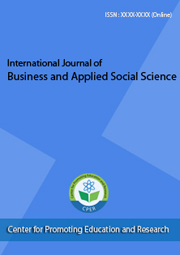current
Table of Contents
Articles
Author(s): Keren Sun; Peter Philips
Abstract:
This article analyzes the philosophical and economic definitions of ends and means and the close relationship between ends and means. Based on this analysis, we believe that human wants and needs belong to the category of the end from the perspective of philosophy, and transportation belongs to the category of means from the perspective of philosophy. In the context of economics, the means represent resources, the ends represent the human needs or want. In the philosophical sense, end belongs to the category of intrinsic value, and means belongs to the category of instrumental value. Therefore, ends belong to the subjective category, and means belong to the objective category. In the consumer behavior theory of economics, the nature of human wants/needs is unlimited; different wants/needs have different degrees of intensity; human wants/needs tend to be competitive, due to the limited resources. Due to the above nature of human wants/needs, human wants/needs can be divided into Maslow’s hierarchy of needs, and due to means belonging to the objective category, resources/means can’t be divided hierarchically modeled Maslow’s hierarchy of needs. Transportation belongs to the category of means/resources, so the theory of Transportation System Users’ Hierarchy of Needs is inappropriate. We further pointed out that the creators and proponents of the theory of transportation system users’ hierarchy of needs did not provide a sufficiently strong argument for the rationality of this theory to further strengthens our view, i.e., the theory of Transportation System Users’ Hierarchy of Needs is inappropriate.






